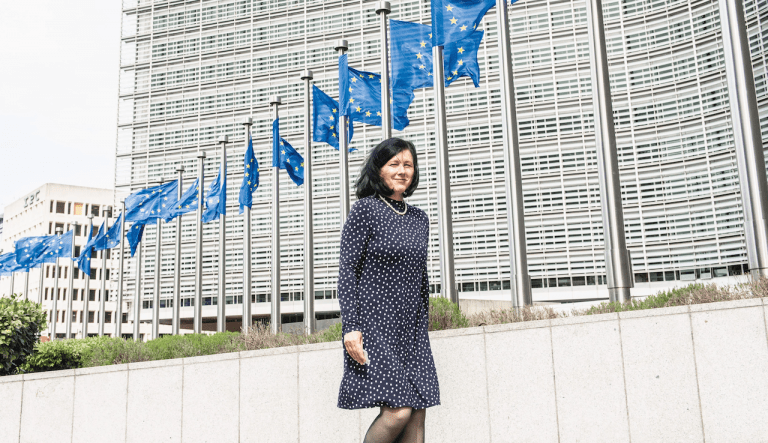This year’s list of the most influential women in the Czech Republic is the magazine’s 11th and largest ever, with 180 prominent names included from a wide range of fields, from the public and political spheres to business and the nonprofit sector. More than 40 new faces appeared on the list for the first time this year. Photo credit: Forbes.cz
Czech Republic, 1 June (BD) – Věra Jourová, the vice president of the European Commission, took the top spot this year for a number of reasons. The organisation, which Jourová has been part of since December 2019, has been very active in recent months, coordinating sanctions against Russia and protecting Europe from targeted disinformation campaigns organised and paid for by the Kremlin.
Furthermore, the Czech Republic will take over the presidency of the Council of the European Union for the next six months, and the Czech Republic’s most powerful politician is expected to be even more influential. “I found myself in what I would call European crisis management at a time of pandemic and war in Ukraine,” said Jourová, who was also crucial in the first legislative measures for a more useful and safer Internet and helped write the regulations for the Covid certificate.
The second most influential woman in the Czech Republic, according to Forbes, is Lenka Bradáčová, the chief prosecutor in Prague, who is now also overseeing the investigation of war crimes in Ukraine. Renáta Kellnerová ranked third, having taken over the business empire of her husband Petr Kellner, who died in a helicopter crash in Alaska last year.
The highest new face on the list is Katarína Kohlmayer, chief financial officer and board member of billionaire Karel Komárek’s KKCG group, who has just acquired Czech citizenship, which is a necessary condition for inclusion in the Forbes Czech ranking.
According to Forbes, the business sector is growing more progressive in terms of female representation in top positions. According to the magazine, women are increasingly leading large companies, in top management positions and on boards of directors. The number of women starting their own successful businesses is also growing.
“Recently, there has been a significant increase in the number of influential women at various levels of the Czech economy. More than forty new names of influential Czech women entrepreneurs and top managers were added to the list this year,” says Petr Šimůnek, editor-in-chief of Forbes.
In addition, this year’s ranking was significantly affected by the autumn elections to the Chamber of Deputies and Petr Fiala’s new government. The top 15 most influential women in the Czech Republic, according to Forbes, now include both the Minister of Defence, Jana Černochová (ODS), and the Speaker of the Chamber of Deputies, Markéta Pekarová Adamová (TOP 09).
On the other hand, the most influential women in last year’s ranking, former Deputy Prime Minister Alena Schillerová (ANO), who is still vice president of the party but now in opposition, does not even feature in the top 100 of this year’s ranking.
Forbes monitored more than 400 women in various fields throughout the year. The editorial staff rates individual women in each category based on various evaluation criteria, according to which they assign points. This is based on the methodology of the U.S. edition of Forbes. The editorial team also invites consultants, experts, and technicians in the field to consult with them in making the ranking.
“We look at companies’ economic results, turnover, profits, new acquisitions and compare them with those of several years ago,” said Šimůnek. “We take into account the situation in the industry in which they operate, using our knowledge of what is happening within the companies. We calculate the amounts of money they have control over and their direct influence, their shares in companies, but also how many employees report to them, and how many customers or consumers they can directly influence.”
“In the politics and public administration section, we consider the actual positions and powers, the number of people and the amount of money that the women in question can influence directly. Another important criterion for us is how these women can be removed from their positions and who has a direct influence on their decisions,” Šimůnek added.







